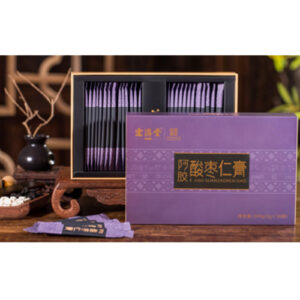Certain herbs used in Ayurvedic pastes may have the potential to increase photosensitivity, making the skin more sensitive to sunlight.
Here are a few examples of herbs that can have photosensitizing effects:
Citrus Fruits: Citrus fruits and their derivatives, such as lemon (Citrus limon) and orange (Citrus sinensis) essential oils, are commonly used in Ayurvedic formulations. These citrus-based ingredients can increase the skin’s sensitivity to sunlight and may cause a heightened reaction to sun exposure.
Bergamot (Citrus bergamia): Bergamot essential oil, derived from the rind of the bergamot orange, is known for its refreshing aroma. However, it can also have photosensitizing properties, so caution should be exercised when using it in herbal pastes.
Angelica (Angelica archangelica): Angelica is an herb used in Ayurveda for various purposes. However, it contains psoralens, which are compounds that can make the skin more sensitive to sunlight.
St. John’s Wort (Hypericum perforatum): While not traditionally used in Ayurveda, St. John’s Wort is an herb known for its mood-enhancing properties. It can also increase photosensitivity, so it’s important to be cautious if using it in any herbal preparations.
It’s important to note that the degree of photosensitivity can vary among individuals, and the risk may be influenced by factors such as skin type, dosage, and duration of exposure. If you are using herbal pastes containing these herbs or other potentially photosensitizing ingredients, herbal paste suppliers in China it’s advisable to take appropriate sun protection measures, such as using sunscreen, wearing protective clothing, and limiting sun exposure during peak hours.
As always, it is recommended to consult with an Ayurvedic practitioner or herbalist for personalized guidance and to ensure the safe use of herbal pastes based on your individual circumstances.
What are some other common side effects or risks associated with using Ayurvedic pastes?
While Ayurvedic pastes are generally considered safe when used appropriately, it’s important to be aware of potential side effects or risks that can arise in certain situations.
Here are a few common considerations:
Skin Irritation or Allergic Reactions: Some individuals may experience skin irritation, redness, or allergic reactions to specific herbs or ingredients used in Ayurvedic pastes. It’s advisable to perform a patch test before applying the paste to a larger area of skin, especially if you have a known sensitivity or allergy.
Contamination or Adulteration: Poor quality control and improper sourcing of herbs can lead to contamination or adulteration, which may pose health risks. It’s crucial to choose reputable brands and suppliers that prioritize quality control and adhere to good manufacturing practices.
Herb-Drug Interactions: Certain herbs used in Ayurvedic pastes may interact with medications. It’s important to consult with your healthcare provider or an Ayurvedic practitioner, especially if you are taking any prescribed medications, to ensure there are no potential herb-drug interactions.
Individual Sensitivities: Each person may respond differently to herbs and their combinations. Some individuals may be more sensitive to certain herbs or may have specific health conditions that require caution or customized formulations. Consulting with an Ayurvedic practitioner or herbalist can help tailor the paste to your specific needs.
Heavy Metal Contamination: In rare cases, Ayurvedic herbal products, including pastes, have been found to contain elevated levels of heavy metals such as lead, mercury, and arsenic. This can occur due to improper sourcing or processing of herbs. Choosing reputable brands and manufacturers can help minimize this risk.
Lack of Standardization: Ayurvedic pastes and formulations can vary in composition and potency due to differences in traditional formulations and manufacturing practices. Standardization and quality control can vary among products and manufacturers.
It’s essential to exercise caution, use reputable products, and consult with qualified healthcare professionals or Ayurvedic practitioners when using Ayurvedic pastes, especially if you have underlying health conditions or are on medications. They can provide personalized guidance and ensure the safe and effective use of Ayurvedic remedies for your specific circumstances.
